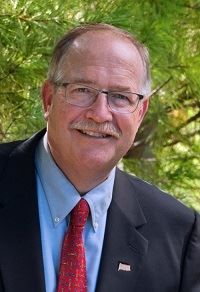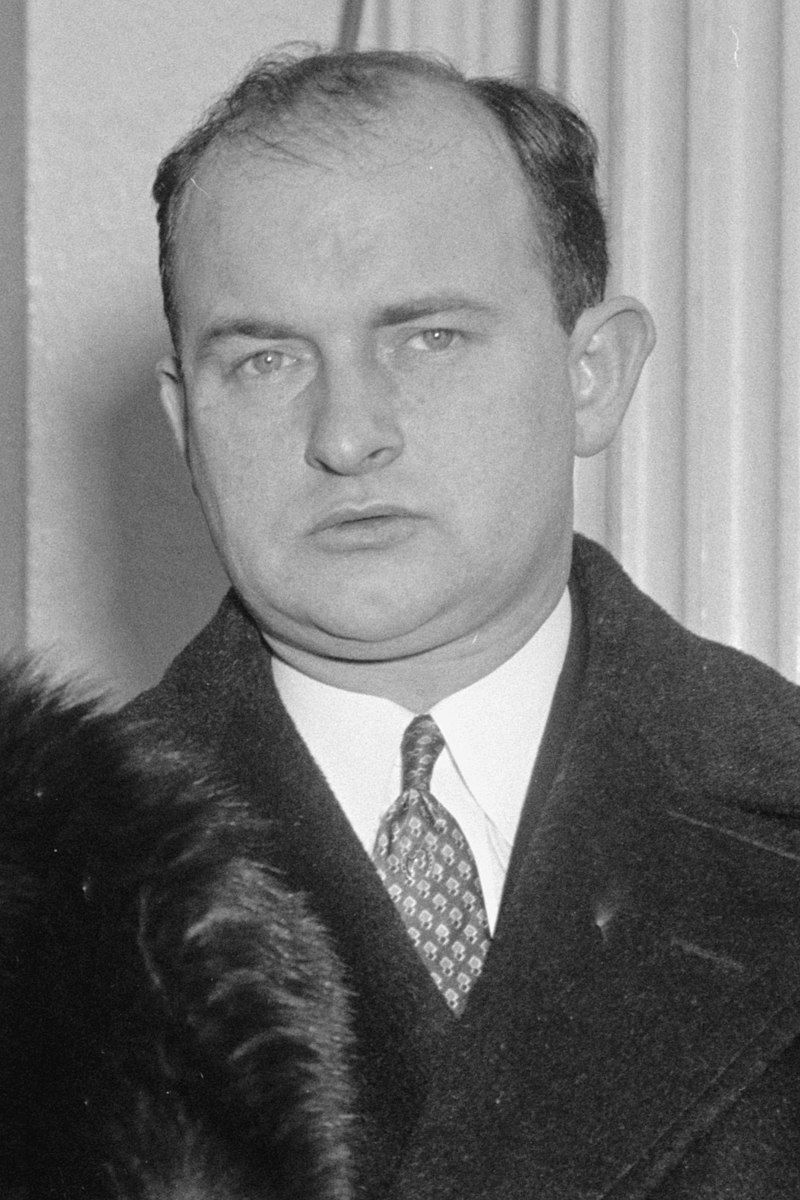The St. Patrick’s Day Parade was late this year in Yonkers. It’s always later, but in 2024, the committee opted for the rain date, Saturday, April 6.
It was, so, less than three months before Democratic Primary Day, Tuesday, June 25.
Local Congressman Jamaal Bowman, himself a Yonkers native, was on his way to the parade before being unavoidably delayed elsewhere. His primary challenger in the 16th Congressional District, Westchester County Executive George Latimer, didn’t show either.* (See the postscript at the end.)
There were two college-age leafleteers for Latimer, one male and one female, but they seemed unsure of themselves. A more assertive middle-aged man joined them a bit later; perhaps, though, his colleagues’ tentativeness was understandable — a half-hearted presence was hardly worth the effort.
Yonkers is New York’s third most populous city, and it might even have along McLean Avenue the most attractive St. Patrick’s Day Parade; and so if you’re going to put on a show, do it right. The winner in the political category, arguably, was a candidate for district attorney. “Driven. Compassionate. Experienced. Democrat Susan Cacace Will Keep Westchester Safe,” said the widely distributed brochure.
A return trip early in June showed that Cacace alone had any presence along the parade route, a lone poster in a law office window.
By this point in the campaign, any Queens neighborhood would have judges’ mugshots in dry cleaners and pharmacist storefronts.
In contrast, McLean Avenue, a thriving, lively suburban main street festooned with American and Irish flags, displays little evidence of the titanic electoral battle being waged in the 16th District.
Back on April 6, the group New York Irish for Palestine distributed a leaflet that said that “one person in eight in Yonkers is Irish or Irish American” and recommended supporters of their cause contact city councilors. Names with contact information were provided. From that list, one might hazard a guess that one member in seven of the city council is Irish. That would be Mike Breen, the Republican minority leader since Jan. 1, 2018. His office did not come back with local intelligence when asked before press time, but it might be a reasonable working assumption that Breen and his party colleague and mayoral candidate Anthony J. Merante draw many of their votes from the very people who marched in the April 6 parade — for example, the massed ranks of cops and firefighters.

Council Member Mike Breen (R).
One could say that the primary has passed by McLean Avenue, the “Emerald Mile,” for that reason — the same reason that means New York State will not see any literature in the lead-up to November’s presidential election: it’s not in play.
But it’s been heating up in the outside world. The liberal Israeli daily Haaretz had this headline on June 3, “Pro-Israel Groups Back Challenger to Jamaal Bowman in High-stakes New York Primary Race.”
It opened, “In a political battle encapsulating the Democratic Party's internal debate on Israel, Jamaal Bowman, who recently called for an end to all military aid to Israel, will face the AIPAC-backed George Latimer in New York on June 25.”
The last was a reference to the American Israel Public Affairs Committee, which a June 15 report in the New York Times said is a “pro-Israel lobby that has already spent $12 million — more than any other race in its history — to try to defeat Mr. Bowman over his criticism of Israel.”
That report was headlined “Progressive Democrats Scramble to Save One of Their Stars From Defeat.”
It said, “The result has been exceedingly ugly, a Democrat-on-Democrat fight rife with competing accusations of antisemitism and racism.”
The battle lines were rather differently drawn when a reporter conducted a mini vox pop along the Emerald Mile. On the sidewalk between the Heritage Bar and the Aisling Irish Community & Cultural Center, Mark McGurk said, “I don’t follow local politics too closely.”
Of Bowman, the Irish American said, “I’ve heard of him. Don’t know too much about him.” He gave the same two-part reply when asked about Latimer.
He did bring up some familiar themes, such as the concern about people coming across the southern border. He referred to the recent incident in which a 19-year-old migrant from Venezuela fired upon and wounded two NYPD officers, both 26, when they stopped him on his scooter in Queens.
Inflation is another worry. “It must be hard for a man to support a family of five or six children,” McGurk said.
About Donald Trump, the former president, he added, “He might be a little better than what’s in there.”
Tim Hayes, a registered Republican and somewhat older — he left Listowel, Co. Kerry, over 60 years ago — agreed with those general sentiments. And his message was straightforward: “Get rid of Biden.”
Gerry O’Shea, another County Kerry immigrant and a retired schoolteacher, was happy to go against this McLean trend. He was not, however, a randomly chosen pedestrian, as he contributes columns and reviews to the Irish Echo (and blogs here about current events).
Sitting at a table outside the Irish Coffee Shop, the registered Democrat said he and his wife, who is from Donegal, have been inundated with campaign mail, though it mostly goes unread.
He indicated he would be supporting Bowman —with incumbency being a big reason. But he’s also been impressed by the 48-year-old former middle-school principal, by listening, first of all, to him speak at a recent luncheon at the Kerry Hall, at which Irish Minister of Education Norma Foley was the honored guest; and secondly by talking with him directly at the same event.
O’Shea thought the congressman went down well with the members generally, although he can’t be sure as politics doesn’t come up very much at the Kerry Hall. “I’m a liberal,” he said of a possible reason.
Not that he personally doesn’t welcome a free and frank exchange of views. He was once a member of the Irish Labour Party, after all, which could mean “three people in a room with three arguments.”
The political issue most on his mind on a recent morning was the environment, and Trump’s vow to do whatever the oil and gas industry bosses wanted if they gave him enough cash. “And not even a denial later,” O’Shea said. A second was contraception, and the Republicans’ wobbling on it. That brought him back to a discussion of the Vatican’s “Humanae Vitae,” issued in July 1968, which he saw then and sees now as disastrous for the church.
He first arrived that year to work in a warehouse. It was the week before Bobby Kennedy was assassinated and he was a final-year student at University College Dublin. He went on to have a teaching career in both Ireland, where some of his grandchildren are being raised and educated, and America.
O’Shea’s perspective is internationalist; he is the secretary and a co-founder of HOPe, a “non-sectarian charitable organization dedicated to empowering poor communities in Developing Countries.”
“We travel on our own dime,” said O’Shea, about their policy of keeping the overheads low.
On Israel, he supports the two-states solution as “the only solution” and calls Ireland’s position on Palestinian statehood “brave,” but it’s not a factor in choosing who to back in an election.
He generally votes about national economic issues. “Twenty-one percent of schoolchildren are going to school hungry,” O’Shea said, “And billionaires [are] lording it over us.”
The former teacher was apologetic, in the end, about not being able to offer more insight about what’s going on in the 16th District.
But a few doors down from the Irish Coffee Shop, the Aisling Center, which O’Shea called “a big success story,” has its local perspective. Executive Director Sandra Feeney-Charles said in a statement, “It is essential for community organizations to maintain transparent and productive working relationships with public representatives, regardless of party or faction.”
As a non-political organization with a “focus on welfare,” the Aisling Center has “a significant role to play in hearing the concerns that our community members have expressed and experience in their daily lives.”
Feeney-Charles added, “Sharing these views with concerned public representatives can lead to effective solutions and have a positive impact on planning and delivery of services, at a community level, district level and beyond.”
If, as Speaker Tip O’Neill said, all politics in local, then those who are interested but are not registered to vote for the incumbent and his challenger’s party are most likely missing out on a real humdinger.

Options Technology's Emma Brazil, a 2023 Irish 40 Under 40 Award recipient, Congressman Jamaal Bowman (16th District-NY), Irish Echo editor Ray O'Hanlon, and the Aisling Irish Community's Sandra Feeney-Charles.
It features Hillary Clinton and other establishment figures backing Latimer, who’s 70.
It has also its almost soap-operatic elements, such as with the accusations of betrayal leveled at former Congressman Mondaire Jones, who has switched his endorsement to Latimer. Considered a rising progressive star, Jones is challenging Republican Congressman Mike Lawler in the neighboring 17th District. Lawler is considered a moderate and his opponent’s move to a more centrist position on some issues makes political sense. Bowman’s high-profile supporters on the left, though, aren’t pleased with Jones, calling out what they see as opportunism.
Then there are the dueling gaffes that have defined the internal Democratic battle in the 16th. One political professional, who did not wish to be named, told the Echo that looking from the outside he was “fascinated” by the two high-profile incidents associated with the 16th Congressional District’s campaigns — long-time incumbent Congressman Eliot Engel’s hot-mic incident in 2020 and Bowman’s pulling of the fire alarm in Congress in 2023, which led to a censure.
He said the race four years ago was “fundamentally driven by Engel's ‘if I didn’t have a primary, I wouldn’t care’ scandal.”
And now this race, which “yes, maybe in some ways [is] a referendum on Israel/Palestine, gained steam from the moment Bowman pulled the fire alarm.
“In many ways, it feels like both moments gave the district permission to morph into a different vision of progressivism,” he said.
On the one hand, one can say there is something unseemly about the possibility of Bowman, an ideal representative for the 16th District in so many ways, being “taken out” by a well-financed campaign. On the other, it’s naive to think there’s much room for sentiment in politics.
The Times said, “Mr. Bowman’s allies fear his loss would not merely deprive the [progressive] movement of one of its most charismatic spokesmen but might also embolden forces trying to pull the party back toward the center on issues like climate change, immigration policy and the war in Gaza.”
Which begs the question, why didn’t they think of that beforehand? If it is a “movement,” how did it leave him so exposed? It’s not as if Bowman hasn’t been a target since he defeated Engel. It was reported soon afterward that the pro-Israel lobby saw the defeat after more than 30 years in Congress as a “debacle.”
Former candidate for office Ron Matten, center, with congressional candidate and Westchester County Executive George Latimer, left, and Deputy County Executive Ken Jenkins pictured on April 6.
Another interesting dimension of the race is how the approaches of the seemingly dispassionate Engel, who the Times says helped get Latimer into the 2024 race, and the more emotional and passionate Bowman have been thrown into stark relief.
The former congressman made foreign concerns part of his retail politics, by speaking and giving voice to certain trends of opinion within ethnic groups. He was reliably pro-Israel, eulogizing, for instance, former Israel Prime Minister Ariel Sharon upon his death in 2014, and he forged friendships with Irish republicans.
Eliot Engel Drive, it must be said, too, is not anywhere in Westchester County — rather, it links Albania and the majority ethnic Albanian nation of Kosovo.
Against that, the Kerry Hall offers from the past — improbably perhaps and indirectly — a more idealistic fusion of progressivism with pragmatism.
That Yonkers institution treasures its connection to the most famous Kerry-born person in New York’s history — one who was even more of an outlier than Gerry O’Shea is today.
The co-founder of the Transport Workers Union, and its longtime leader, Michael J. Quill, is famous for the line during the New York City subway strike in 1966, “The judge can drop dead in his black robes.”
But there are other memorable Quill quotes, like, “If black and white, Catholic and non-Catholic, Jew and Gentile are good enough to slave and sweat together, then they are good enough to unite and fight together."
Quill was a financial backer of Martin Luther King Jr. and a progressive on race when red-lining in America’s suburbs was the norm (the effects of which, one of them white denial, the nation is still living). He was elected to the city council as a member of the American Labor Party, when it was accused of being a communist front. Assumed now to have been a secret member for years, he broke with the CPUSA in 1948, a year when it had inserted itself prominently into the significant third-party presidential challenge by the Progressive Party.

Mike Quill in 1938.
The Progressives’ standard-bearer was former U.S. Vice-President Henry Wallace, who promoted a less aggressive, more idealistic foreign policy in the era that the recent multiple Oscar-winning blockbuster “Oppenheimer” is set.
Ellen Schrecker in her standard history of the post-World War II Red Scare, “Many Are the Crimes,” suggests that Quill made the sensible decision for himself and his union. Wallace’s subsequent poor showing — he got one million and a half votes, instead of an expected 4 to 5 million — “destroyed the mystique that had developed about the [communist] party’s political prowess.”
She writes of the party, “Its obvious political isolation made it increasingly vulnerable to attack.”
The lesson for the 16th District is that foreign policy, especially a situation that can change daily, is dangerous terrain. It introduces variables that are hard to control.
Postscript: George Latimer won Tuesday’s primary. As of Saturday, June 29, with 95 percent of districts reporting, the winner had 58 percent of the votes (44,371) and Rep. Jamaal Bowman 41 percent (31,555).
Latimer was present at the St. Patrick’s Day Parade in Yonkers, the Echo has been informed since the story was first posted online on Friday, June 21, and we make the correction with the photo above. The “didn’t show” is a reference to the fact that neither candidate conducted an old-style wave-and-greet along the parade route.
This story was produced as part of the 2024 Elections Reporting Mentorship, organized by the Center for Community Media and funded by the NYC Mayor's Office of Media and Entertainment.







